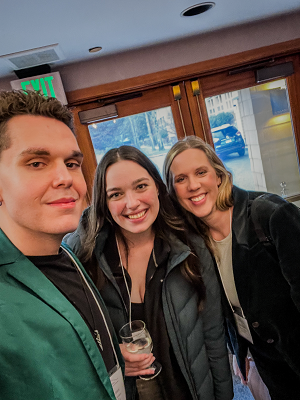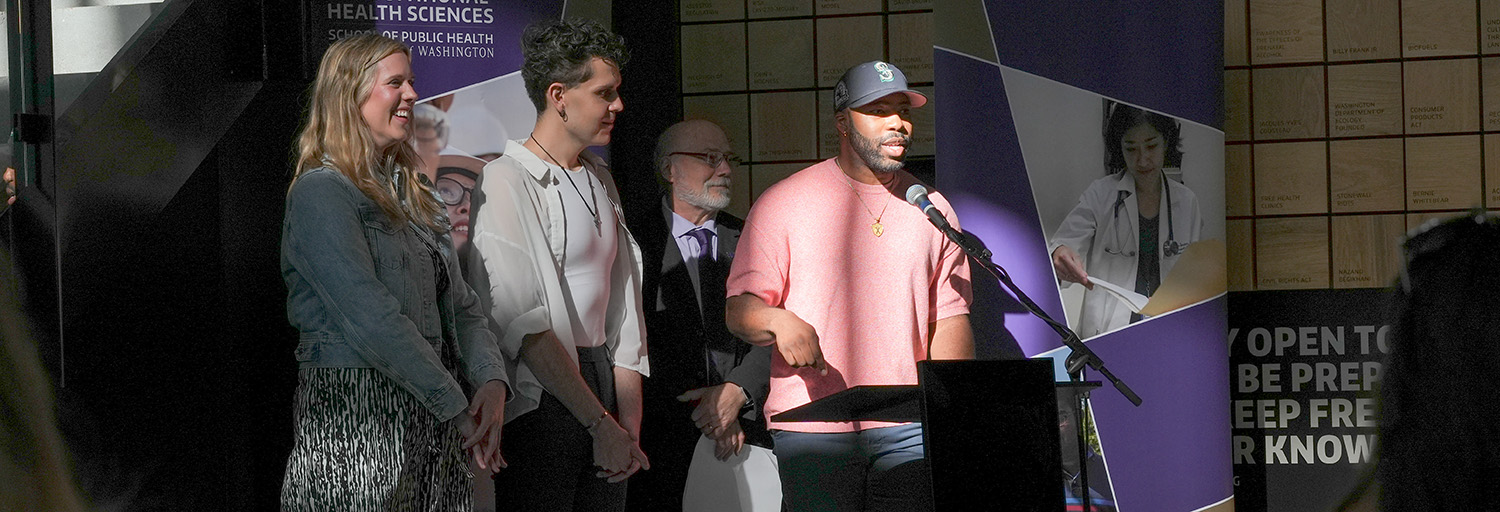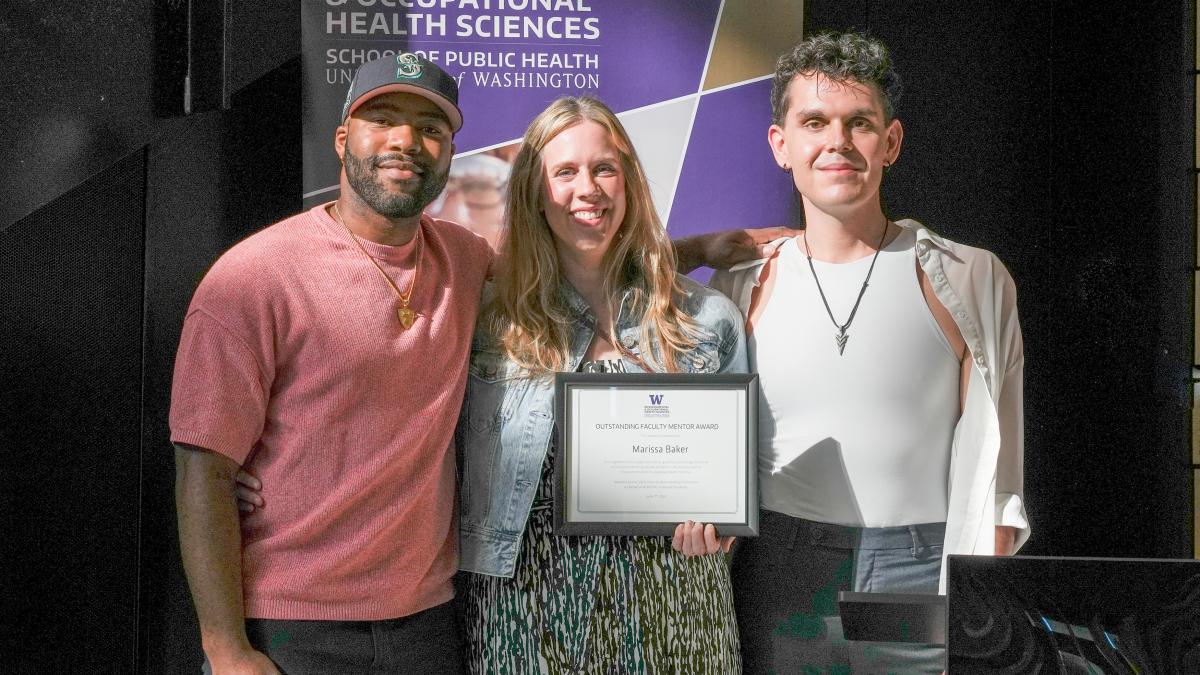Amalawa Aiwekhoe remembers the first class he took with Marissa Baker. It was also one of the first in-person classes he could take during his undergraduate studies in the UW Department of Environmental & Occupational Health Sciences (DEOHS), which he began during the most socially distanced years of the pandemic.

In her Risk Assessment class, Baker, an assistant professor in DEOHS and deputy director of the Northwest Center for Occupational Health and Safety, fostered connections that he had been missing in previous years of Zoom-based instruction.
“Marissa's teaching style is very group based, and focused on encouraging us to communicate with our classmates,” he said. “I really appreciate that, because as a working professional, we’re going to be working with people and collaborating on ideas. It left a lot of room for our own critical thinking.”
Soon afterwards, Baker became a mentor for Aiwekhoe, and a major factor in his decision to return to DEOHS after graduation to pursue an applied master’s degree focused on occupational health in cannabis workers.
Earlier this June, Aiwekhoe and fellow MS student Hunt Solaro presented Baker with the 2024 DEOHS Outstanding Faculty Mentor award at the DEOHS Graduation Celebration.
“The interactions I have with students, both in and out of class, are easily some of the best parts of my job,” Baker said after receiving the award. “Being able to help students become excited about occupational hygiene and public health energizes me, and there is nothing better than watching mentees publish their first paper, complete a research project, land a cool internship or grow in their public health careers.”
A workplace health advocate
Baker’s occupational health research has broken new ground by focusing on understudied groups, including women construction workers, rideshare drivers, transit workers, maritime workers and more.
“Marissa works a lot with groups of workers who come to her and say, ‘We're interested in knowing more about this issue,’” said DEOHS PhD student Ally Clonch, who is advised by Baker. “Oftentimes, Marissa takes on projects that no one else is looking at.”
Baker’s active engagement in research, community partnership and advocacy enriches the learning experience for her students, Solaro said.
"Her efforts extend far beyond the classroom, including advising the Environmental Protection Agency, collaborating with the Seattle City Council, and contributing to community initiatives, particularly during the challenges posed by the COVID-19 pandemic,” he said.
Support beyond the classroom
Solaro noted that one of Baker’s most remarkable qualities is to “foster a sense of camaraderie and mutual respect within our field.”
“Despite her esteemed position as advisor, mentor, and professor, she seamlessly integrates herself as a peer, treating me with the utmost respect and dignity,” he said.
Her guidance was instrumental in jump starting his career in industrial hygiene, facilitating internships at institutions such as Lawrence Berkeley National Laboratory and Sound Transit, he said.
“Her brilliance in instruction is matched only by her fun and friendly approach,” Solaro said of Baker. “Her availability and responsiveness have been astonishing, consistently connecting me with internship opportunities, academic peers, research grants, scholarships and more.”

A genuine mentor
Aiwekhoe has appreciated Baker’s “genuine” approach to mentorship as his master’s adviser.
“She's always been super supportive, telling things to me straight,” he said. She also listens to his concerns, whether they involve academics, career decisions or personal challenges.
After graduating with his BS in Environmental Health, Aiwekhoe began working at Boeing as an industrial hygienist, but he also wanted to pursue a master’s in DEOHS. Focusing on the degree required him to take a leave of absence from his job.
While she was bringing students on a tour of Boeing with the Brotherhood Initiative, Baker talked with his supervisor at Boeing to help forge a plan that would work for all of them.
Last year, she helped him secure an on-campus job with UW Environmental Health & and Safety. The opportunity not only helped him cover rent after a roommate moved out, but also allowed him to fulfill requirements to pursue his license as a certified industrial hygienist.
Guidance and encouragement to grow
“My work style matches very well with Marissa's: she gives me leeway to run with things, and she also gives me input where I need it,” said another advisee of Baker’s, DEOHS PhD student Pranav Srikanth.
“That's really helpful because it lets me spread my wings as I figure things out, but I don't have to worry about getting lost along the way.”
“It’s such a cool honor to be recognized by the students with this award,” Baker said. “I’ve been so lucky to work with incredibly motivated and talented students.”
